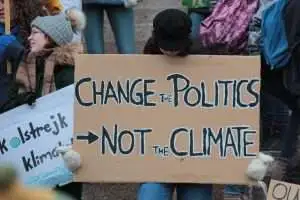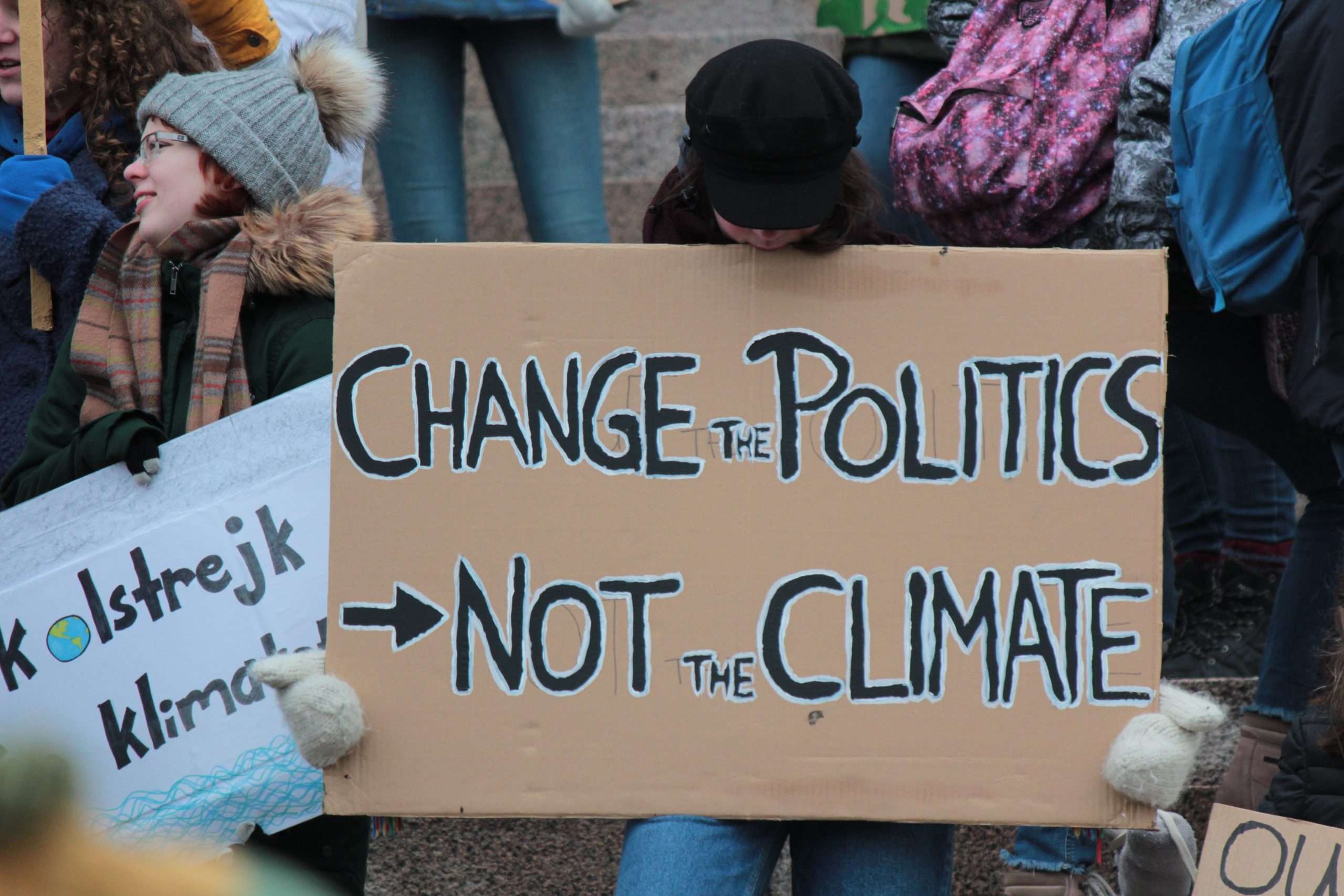Introduction

Youth Involved In Politics and War In Developing Countries 2000s. The youth of developing countries in the 2000s were not just sitting idle, waiting for their future to arrive. They took a proactive stance towards their present and fought for what they believed in- be it through politics or on the battlefield. The new millennium saw an unprecedented level of young people actively participating in shaping their country’s political landscape and defending it from external threats.
In this post, we will delve deeper into the role played by the youth of developing nations in politics, war during the early years of this century. So buckle up for a fascinating read that highlights how youths can be a driving force behind change – even against all odds!

How politics and war have affected the youth
In many developing countries, the youth are often on the frontlines of political and military conflict. They may be drafted into militias or rebel groups, or they may be forced to flee their homes to escape violence. As a result, they experience firsthand the effects of war and politics on their lives and their communities.
The impact of war and politics on young people can be profound. For example, children who are forced to flee their homes due to conflict may suffer from trauma and anxiety. They may also have difficulty accessing education and other basic services. In addition, young people who are actively involved in militaries or armed groups may be exposed to violence and killing. This can lead to physical and psychological injuries, as well as social isolation from their peers.
The effects of war and politics on the youth can also be positive. For example, young people who are involved in politics or social activism can learn about democracy and human rights. They may also gain leadership skills and build networks of support within their communities. In addition, young people who participate in peacebuilding initiatives can help to create lasting change in their societies
The different ways the youth have coped
In the past, when young people were faced with political or military conflict, they would often resort to violence as a way of coping. This would involve joining gangs, taking up arms, or engaging in other forms of aggression. However, there has been a shift in recent years, with many young people instead choosing to engage in peaceful protests and activism. This is particularly common among youth who have grown up in countries that are experiencing political instability or who have been affected by war. While some young people still turn to violence as a way of coping, the trend seems to be moving towards peaceful means of expression.
There are a number of reasons why young people might choose to engage in peaceful protest rather than violence. In some cases, it may be because they believe that it is more effective in bringing about change. Others may feel that it is a more moral option, or that it will not lead to escalation and further bloodshed. Whatever the reason, it is clear that the youth of today are increasingly choosing peace over violence when faced with conflict.
What the future holds for the youth involved in politics and war
There is no one answer to this question. Every youth’s situation is different, and the future depends on many factors.
However, there are some general trends that can be seen in the youth involved in politics and war in developing countries. First, many of these young people are incredibly resilient and have shown great strength in the face of difficult circumstances. This bodes well for their future, no matter what challenges they may face.
Second, the youth involved in policies and war often have a lot of experience dealing with complex issues and navigating difficult situations. This gives them an advantage as they move into adulthood and enter into leadership positions.
Finally, it is clear that the youth involved in politics & war care deeply about their countries and their communities. They have demonstrated a commitment to making positive change, and this will continue to drive them forward in the future.

How Does Politics Influence War and Development?
Politics and war have always been intertwined throughout history, and their impact on development cannot be overlooked. Politics, as the art of governing societies, plays a crucial role in influencing the occurrence of wars and shaping the subsequent development of nations. This essay will explore the complex relationship between politics, war, and development, investigating the ways in which political decisions and actions affect the outbreak and aftermath of wars, ultimately impacting a nation’s development.
Firstly, politics heavily influences the occurrence of wars. Political leaders have the power to wage war or pursue peaceful solutions to conflicts. Their decisions are influenced by a range of factors, including domestic politics, international relations, and ideological considerations. National interests, such as securing resources or protecting territorial integrity, often prompt political leaders to resort to war as a means to achieve their goals. Thus, the political choices made by leaders significantly impact the initiation of wars.
Furthermore, politics shape the development of war strategies and tactics. The effectiveness of a nation’s military is a reflection of its political leadership’s ability to formulate and implement comprehensive military strategies. Political decisions such as resource allocation, military modernization, and the establishment of alliances significantly impact a nation’s war-fighting capabilities. Consequently, the political decisions made during times of war directly influence the success or failure of military campaigns, thereby shaping the course of war and development.
Moreover, politics plays a crucial role in post-war development and reconstruction. Political decisions regarding the allocation of resources, distribution of aid, and establishment of governance structures can determine the trajectory of a nation’s development after a conflict. The political will to prioritize development and invest in infrastructure, education, and healthcare is essential for rebuilding a war-torn nation. Conversely, political instability, corruption, and lack of political consensus can hinder development efforts, causing long-term repercussions for the affected population.
Politics also influences the international response to wars, impacting both conflict resolution and development efforts. The political decisions made by powerful nations and international institutions play a vital role in mediating conflicts and facilitating development in post-war regions. Diplomatic negotiations, peacekeeping missions, and economic aid are political tools used to shape the outcome of wars and promote development in war-affected areas. Without political will and international cooperation, development efforts can be thwarted, further perpetuating cycles of violence and poverty.
Furthermore, political ideologies play a significant role in shaping the nature and conduct of wars. Ideological differences often fuel conflicts, as the pursuit of political power and control can manifest in aggressive and militaristic behavior. Wars driven by political ideologies often have a lasting impact on development, as they reshape societal structures and alter economic systems. For example, the ideological rivalry between capitalism and communism during the Cold War profoundly affected the development trajectories of nations by shaping their political and economic systems.
In addition, politics influences the financial aspects of war and development. Wars require significant financial resources, and political decisions regarding military budgets, taxation, and debt management directly impact a nation’s ability to sustain a war effort. Conversely, the economic consequences of war, including destruction, loss of infrastructure, and increased social spending, shape a country’s development prospects. Thus, the political decisions made in managing economic resources during times of war have lasting implications on development.
Moreover, politics influences the distribution of power and resources within nations. Wars often accentuate existing political fault lines, exacerbating societal divisions and inequalities. Political decisions regarding resource allocation, land distribution, or political representation can drive conflicts and hinder development efforts. Addressing political grievances and ensuring a fair distribution of resources and power are essential for post-war development and long-term stability.
Furthermore, politics shapes the narrative and justification for wars. Political leaders often employ rhetoric and propaganda to garner domestic support for military actions. By framing wars as necessary for protection, liberation, or national pride, political leaders can mobilize public sentiment and build consensus for military engagements. This manipulation of public opinion directly affects the willingness to invest in development efforts, as resources are diverted towards military spending rather than socioeconomic programs.
Finally, politics influences the efficacy of international cooperation for development. Political decisions regarding alliances, trade agreements, and diplomacy impact a nation’s ability to access international resources and markets. The alignment of political interests, as seen in regional organizations or international forums, greatly impacts a nation’s development prospects. Political disagreements and power struggles within international bodies can hinder aid, impede trade, and hamper development efforts in war-affected regions.
Youth Have a Role on Influencing Peace and Development
Youth have always played an important role in shaping societies and driving progress, and this holds true when it comes to influencing peace and development. Young people possess unique perspectives, energy, and fervor, making them invaluable resources in building a more peaceful and sustainable world. In this essay, we will explore the ways in which the youth contribute to peace and development.
First and foremost, young people are often at the forefront of social change movements. Their passion for justice, equality, and human rights has the power to challenge the status quo and bring about positive transformations. Through activism, protests, and grassroots organizing, young people can raise awareness about issues that threaten peace and hinder development, such as conflicts, discrimination, poverty, and climate change.
Furthermore, youth engagement in politics and governance is essential for achieving peace and development. By participating in democratic systems and institutions, young people can voice their concerns and contribute to decision-making processes. They can advocate for policies that support peacebuilding and sustainable development, ensuring that their generation’s needs and aspirations are represented and addressed.
In addition, youth possess immense creativity and innovation, which are crucial for driving progress. Through their natural inclination for experimentation, young people can introduce fresh ideas, technologies, and solutions to some of the world’s most pressing issues. This can lead to economic growth and social development, promoting peace and stability.
Moreover, education plays a fundamental role in empowering youth to influence peace and development. Access to quality education equips young people with the necessary knowledge, skills, and critical thinking abilities to understand complex challenges and develop sustainable solutions. It enables them to become agents of positive change and contribute meaningfully to their communities, nations, and the world.
Furthermore, youth-led organizations and initiatives are critical platforms for fostering peace and development. These organizations provide opportunities for young people to collaborate, share ideas, and implement projects that address various social, economic, and environmental issues. By working together, youth can amplify their impact and create a collective force for positive change.
Additionally, the use of digital media and technology has increased the youth’s capacity to shape peace and development. Social media platforms allow young people to connect with others globally, raising awareness about critical issues and mobilizing support for causes. Online campaigns and digital activism provide avenues for youth to influence public opinion and engage with decision-makers.
Moreover, fostering intercultural dialogue and understanding among youth is vital for building a more peaceful world. By promoting tolerance, empathy, and inclusivity, young people can bridge divides and overcome cultural, religious, and ethnic differences. This cultivates a sense of unity and reduces conflicts, enhancing peace and stability within their communities and beyond.
Furthermore, young people can contribute to economic growth and development by becoming entrepreneurs and job creators. By harnessing their creativity and innovation, they can establish sustainable businesses and enterprises, thereby supporting local economies and providing employment opportunities for others. Economic stability is an essential component of peace, and youth play a crucial role in achieving it.
Lastly, youth have the ability to inspire and mobilize other generations to work towards peace and development. Through their actions and dedication, they can showcase the power and potential of young people, encouraging older generations to mentor, support, and invest in youth-led initiatives. This intergenerational collaboration paves the way for a more harmonious and prosperous future.
Youth have a significant role to play in influencing peace and development. Their determination, creativity, and commitment to justice and progress make them valuable contributors to building a better world. By engaging in activism, participating in politics, utilizing technology, fostering intercultural understanding, promoting education, and establishing sustainable businesses, young people can create lasting change and contribute to achieving peace and sustainable development. It is crucial for societies and governments to recognize the potential of youth and provide them with the necessary support and platforms to make a meaningful difference.
Conclusion on Politics and War
In conclusion, the relationship between politics, war, and development is complex and multifaceted. Politics influences the


2 thoughts on “Youth Involved In Politics and War In Developing Countries 2000s”